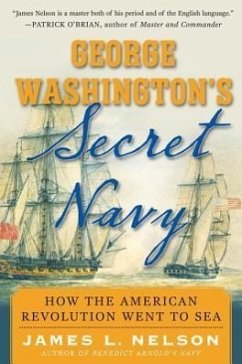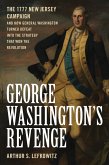"James Nelson is not the first historian to reveal this little-known albeit incredibly important aspect of our Revolution, but no one has done it more thoroughly or with greater literary grace." --William M. Fowler, author of Empires at War In July 1775, in his first inspection of the American encampment on the outskirts of Boston, the Continental Army's newly arrived commander-in-chief noted its haphazard design and shabby construction--clearly the work of men unprepared to face the world's most powerful fighting force. George Washington had inherited not only an army of woefully untrained and ill-equipped soldiers, but a daunting military prospect as well. To the east he could see the enemy's heavily fortified positions on Bunker Hill and a formidable naval presence on the river beyond. British-occupied Boston was defended by impressive redoubts that would easily repel any American assault, and Boston Harbor bristled with the masts of merchant ships delivering food, clothing, arms, ammunition, and other necessities to the British. Washington knew that the king's troops had all the arms and gunpowder they could want, whereas his own army lacked enough powder for even one hour of major combat. The Americans were in danger of losing a war before it had truly begun. Despite his complete lack of naval experience, Washington recognized that harassing British merchant ships was his only means of carrying the fight to the enemy and sustaining an otherwise unsustainable stalemate. But he also knew that many in Congress still hoped for reconciliation with England, and in that climate Congressional approval for naval action was out of the question. So, without notifying Congress and with no real authority to do so, the general began arming small merchant schooners and sending them to sea to hunt down British transports "in the Service of the ministerial Army." In George Washington's Secret Navy, award-winning author James L. Nelson tells the fascinating tale of how America's first commander-in-chief launched America's first navy. Nelson introduces us to another side of a general known for his unprecedented respect for civilian authority. Here we meet a man whose singular act of independence helped keep the Revolution alive in 1775.
Hinweis: Dieser Artikel kann nur an eine deutsche Lieferadresse ausgeliefert werden.
Hinweis: Dieser Artikel kann nur an eine deutsche Lieferadresse ausgeliefert werden.








